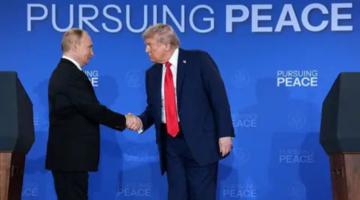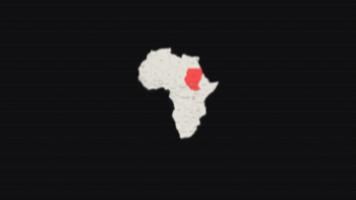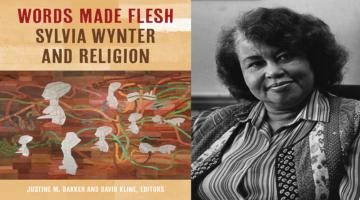“White settlers were convinced that the lands they appropriated in the ‘dark continent’ and other lands were theirs by right.”
The word apartheid achieved global notoriety during the height of White rule in South Africa. It then extended at least to one other country where blatant state-sanctioned bigotry went hand in hand with “democracy”: Israel (1, 2). The underlying creed fueling racist practices was White supremacy with its Eurocentric beginnings. Racism historically informed much of the imperial/colonial Caucasian dealings with other societies, beginning in earnest during the voyages of “discovery,” inaugurated by Christopher Columbus, where the slaughter of millions, massive human dislodgments under the umbrella of slavery, unprecedented dispossession and theft of entire far flung continents were to follow. Separate but Equal, Uncle Tom, Jim Crow, segregation, racial discrimination, civil rights violations, colonialism, assimilation, conquistadores, Bantustans and other innocuous, hollow terms intended to attenuate or mitigate the crimes were firmly sown in the minds of the rank and file of the victors.
Until recently, conquerors had a monopoly of relating and documenting history with colonial subjects looking on submissively until the explosion of the anti-colonial struggles began to alter the course of event— in Africa and Asia especially, albeit fleetingly. The term apartheid then, even if applied retroactively, is unlikely to gain currency to characterize patterns of imperial conduct of the past that had indistinguishable aims: dehumanize, denigrate, dispossess and destroy the vanquished. But apartheid in practice they most certainly were. Thus, the tripartite representatives of this practice --- European settler and colonizing nations, apartheid South Africa and Israel, should be so branded for the sake of calling a spade a spade and for prioritizing substance over style. Lexical hair-splitting over events that held unbelievably cruel consequences for native, indigenous peoples would not serve any useful purpose for any meaningful analyses or historical perspectives on land reforms in South Africa.
“Conquerors had a monopoly of relating and documenting history with colonial subjects looking on submissively.”
Regardless of the lexicon used, the aftermath had inexorable parallels in all lands where European invaders established footholds: vanquishing natives and robbing them of their ancestral lands; sabotaging their reference points and ethos forever. No matter too, that many native residents had freely roamed the landscapes for millennia -- save for practitioners of intensive crop and/or livestock husbandry. Even there, the concept of private ownership was alien to native societies, neutralized as it was by the overriding imperative of satisfying collective needs (family à clan à tribe à societal) over individual greed -- a tacit eminent domain principle etched in the social ethos. Wars were waged, to be sure, as territorial instincts spawned hostilities, especially at the interface of group contacts. Where empires resulted from skirmishes, few if any, had reached the scale achieved by European conquest. Certainly, none are documented to have ventured beyond local frontiers to distant continents for conquest and fashioning empires spanning much of the globe.
In European colonized lands, occupiers imported their concepts of land as assets, to be traded much like any other merchandise. Largely for the colonizers’ benefit of course, with the natives excluded in the real estate transactions. Consumerism had found expression in land ownership long before it was to gain ascendancy in the fecund junk ownership rampant in modern neoliberal capitalist economies, that has now spanned the globe and whose cash flow is unidirectional: toward the imperial metropolis. Three factors encapsulate the motivation that mostly led to irreversible catastrophes: greed (gold, spices, land), god (one exclusive to the victors), glory (, exceptionalism and notions of superiority cited with my italicized emphasis 3).
“The ‘Empty Land’ myth was invoked to justify massive land robberies.”
Subsequent anti-colonial struggles made land a central issue targeted for containment and reverse the dispossessing drives aggressively pursued by colonial and invading powers. This was testament to the unwitting assimilation of Eurocentric land ownership principles by the colonized as integral to their struggles to liberate themselves from the colonial yoke. An astute idea, terra nullius (4) or the “Empty Land” myth (5) was invoked to justify massive land robberies. Few, if any of the planet’s countries can claim to be without large swathes of empty, uninhabited lands within its borders, which, according to the logic implicit in such a notion, should invite occupation and appropriation from any and all comers. But this would invite derision and ridicule if aspirants to such land ownership were natives who summoned the same logic to occupy empty expanses of land. European prevalence is a God-given right; the coveting of White acquisitions by colored folks is a God-given curse -- according to the precepts of exceptionalism, long before they were to be codified into quasi-legal frameworks.
Recently, South Africa’s parliament voted to seize White-owned land without compensation (6,7). Notice the subtle absurdity here: that Afrikaners had given serious thought to compensating Black South Africans for the land they stole. The South African measure had been in the pipeline for some time although few paid much attention. Zimbabwe had taken the “foolish” step of reclaiming land from White farmers that did not belong to the latter. Zimbabweans understood that the British settlers had not imported it from Britain. Foolish because as a result Zimbabwe was to suffer sanctions that drove their economy to near total ruin. Contrast that with Zionist Israel being rewarded for their dispossessing Palestinians with billions of American taxpayer dollars. Beyond that, any moves to push for divestment against this egregious Zionist policy is being criminalized in increasing numbers of states of the Union. Zimbabweans were being punished for claiming what was rightfully theirs, while Israel is compensated for what is expropriated. The idea that Zimbabweans could demand entitlements to lush farms in the English countryside, whatever the pretext, would be met with scorn and laughter, but that humor was lost on White settlers convinced that the lands they appropriated in the “dark continent” and other lands were theirs by right, just as British settlers had appropriated rich farmlands in Kenya and named them the “White” highlands.
“Zionist Israel was rewarded for their dispossessing Palestinians with billions of American taxpayer dollars.”
Western sanctions against Zimbabwe, contrary to claims of injustice, were driven by kinship sentiments. They were not borne out of White empathy for the woes of ordinary Zimbabweans who were hurt most by the sanctions. Bleeding Western hearts could have encouraged a more disciplined approach to the conundrum by sharing expertise in agriculture and farm management to help Zimbabwean farmers oversee smoother transition in farmland ownership and compensate their kinsfolk for appropriating land without consent of their owners, as the British had done in Kenya. Still, and despite the initial setbacks admitted by former President Mugabe, ten years on, there are signs of recovery with corn production now higher than at any time of White ownership of Zimbabwe’s farmlands, as is the production of other crops.
All said, there is a convergence of histories of Western settler, colonial and imperial expansion: massive land thefts and the social and economic isolation of natives. These actions would reflect in fact apartheid-like scenarios, but this term has been dropped and restricted to South Africa and Israel. Between 1776 and the present, in the US alone, an astounding 1.5 billion acres were seized from native inhabitants. This represents a land mass about 25 times the size of the United Kingdom. Not counting figures in Canada, South America, Australia and New Zealand. The combined land area of the Americas alone makes up 8% of the total surface area of the planet and over 28% of the planet’s land area. Australia accounts for a cool 5% of the earth’s land area. The Indian Ocean island of Diego Garcia was emptied of its inhabitants to make way for an American military base; that is chicken feed by comparison.
Africa represented a different set of challenges. Much of its terrain possessed natural barriers to European settler appropriation: malaria and sleeping sickness. But lands that supported intensive farming practices in as far flung places as Kenya, Algeria, Zimbabwe, and South Africa were stolen with the ensuing anti-colonial struggles -- particularly vicious in Algeria (2 million dead) and Kenya (estimates range between 11,000 to 90,000 casualties) -- subsequently halting and reversing such thefts.
“Between 1776 and the present, in the US alone, an astounding 1.5 billion acres were seized from native inhabitants.”
Since the land redistribution announcement from Pretoria, White kinship passions seem to be gathering momentum: an online petition (8) calls on Trump to "take the steps necessary to initiate an emergency immigration plan allowing white Boers to come to the United States." Boers may reside in a shithole continent, but their skin color still entitles them to privileges denied others devastated by American wars of aggression. Elsewhere, a member of the European Parliament (Janice Atkinson) recently wrote to British Foreign Secretary Boris Johnson‚ urging the him to “mediate” with South African officials following the National Assembly's passing of a motion to investigate land expropriation without compensation (9). She said she was a regular visitor to South Africa‚ and had followed the country's "troubled history for years." To this racist, South Africa’s “troubled history” began with the long overdue land reforms, not with decades-long racism and dispossession. Besides, Zionist Israel’s ongoing theft of Palestinian lands would scarcely justify such lofty mediation efforts. A seemingly progressive site as the UNZ Review had an uncommonly reactionary piece on this issue (10) whose concluding remarks speak mountains about kinship concerns trumping historical injustices and measures to redress them. “Most damningly, the country’s constitution has a clause devoted to ‘Limitation of Rights.’ Apparently, the constitutional ‘scholars’ who compiled the document saw no need to protect the rights of minorities ‘that [had] not been victims of past discrimination.’” Whatever happened to redressing balances for the overwhelming majority in place of continuing the untenable status quo initiated by an uninvited usurper?
Black kinship sentiments were not about to be upended on the issue of land reform. “…participants of the Summit of the Non-Alignment Movement held in Tanzania in 2003 gave unqualified political support to the Mugabe regime at virtually the same time that Australia, Britain and the United States (where is Canada, Israel and New Zealand when you need them? Italics supplied) were successfully pushing for the renewal and extension of ‘smart sanctions’ against Mugabe and his cronies. According to such an approach racial solidarity would be the driving force behind policy stances of African leaders, including Thabo Mbeki, towards the Zimbabwe crisis (12).” But racial solidarity initiated by Black Africans would be an aberration. Racial narratives and the refashioning of realities have been proceeding unchallenged from Europeans for so long that the idea that Africans and others can possess similar narratives has been total lost on them.
Kweli Nzito is a retired scientist now living in the Philippines.
Notes:
- (https://www.washingtonpost.com/news/worldviews/wp/2017/03/16/is-israel-an-apartheid-state-this-u-n-report-says-yes/?utm_term=.b8fdb5ef22d3
- Jimmy Carter. Palestine: Peace, Not Apartheid, Simon Schuster, 2007).
- https://www.khanacademy.org/humanities/ap-us-history/period-1/apush-old-and-new-worlds-collide/a/motivations-for-conquest-of-the-new-world
- http://www.un.org/WCAR/e-kit/indigenous.htm
- (http://www.sahistory.org.za/article/empty-land-myth)
- http://www.independent.co.uk/news/world/africa/south-africa-white-farms-land-seizure-anc-race-relations-a8234461.html
- http://www.dailymail.co.uk/news/article-5443599/White-South-African-farmers-removed-land.html
- http://www.newsweek.com/thousands-sign-petition-asking-trump-allow-white-people-south-africa-migrate-826126
- https://www.timeslive.co.za/news/south-africa/2018-03-02-britain-must-intervene-in-sa-land-debate-says-member-of-european-parliament/
- http://www.unz.com/imercer/south-africa-land-theft-crappy-constitution-all-but-allows-it/#comment-2238279
- http://www.up.ac.za/media/shared/Legacy/sitefiles/file/48/4153/fromfreedomchartertocautiouslandreformthepoliticsoflandinsouthafrica_wardanseeuwandchrisalden.pdf
- Chris Alden and Ward Anseeuw, 2009. Land. Liberation and Compromise, Palgrade McMillan, p111.



















